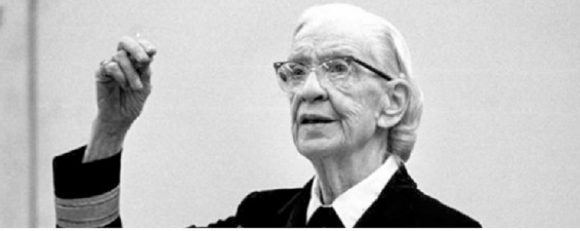Dear Commons Community,
Yale University will change the name of its Calhoun College after protesters said the Ivy League school should drop the honor it gave to an alumnus who was a prominent advocate of U.S. slavery. As reported in Reuters:
The college is named for John C. Calhoun, a South Carolina native who served as U.S. vice president under John Quincy Adams and Andrew Jackson. He graduated from Yale College in 1804.
Yale said it will rename Calhoun College for Grace Murray Hopper, an alumnus who received a PhD in mathematics and mathematical physics in 1934. It described Hopper, who died in 1992, as a trailblazing computer scientist and a brilliant mathematician who also served as a rear admiral in the U.S. Navy.
“The decision to change a college’s name is not one we take lightly,” Yale President Peter Salovey said in a statement about the residential college’s name that has existed for 86 years.
“Calhoun’s legacy as a white supremacist and a national leader who passionately promoted slavery as a ‘positive good’ fundamentally conflicts with Yale’s mission and values,” he added.
The Ivy League school in New Haven, Connecticut, is among several universities that have recently faced calls to dissociate themselves from symbols associated with racism.
The decision was made after a meeting with the university’s board of trustees, the university president said.
For those who worked in the early days of computer programming, Hopper was one of the great luminaries. Below is a brief bio of Hopper from my book, Online Education Policy and Practice… (Taylor & Francis, 2017).
Tony
======================================================================================
Grace Hopper
Grace Hopper received her masters degree in mathematics in 1931 from Yale University and shortly thereafter began teaching at Vassar College. In 1934, she was the first woman to earn a Ph.D. in mathematics at Yale. In 1943, she joined the Navy Reserve and was assigned to work with the Bureau of Ordnance Computation Project at Harvard University, where she learned to program the Mark I computer. As one of the lead programmers for the Mark I, she became a close colleague of Howard Aiken and assisted in the design of the Mark II and Mark III computers. Hopper’s greatest contributions were in the field of computer programming. She popularized the term “computer bug” and helped advance the development of computer subroutines. The latter made computer programming far more efficient and provided for utilizing the same computer code over and over again. She is also credited with developing the concept of the compiler which allows programs written on one machine to be easily converted to another machine. Mechanical relays would no longer need to be rewired and instead could receive a new set of instructions via paper tape.
After World War II, Hopper resigned from the Navy and left the academic world for private industry where she continued her pioneering work in computer programming. She worked with J. Prescott Eckert and John Mauchly in designing new computers including Univac I and later coordinated the development of the Common Business Oriented Language (COBOL) which became the first machine-independent language and a mainstay of business applications for decades. In 1969, she was awarded the first ever Computer Science Man-of-the-Year Award from the Data Processing Management Association. In 1973, she became the first person from the United States and the first woman of any nationality to be made a Distinguished Fellow of the British Computer Society.


